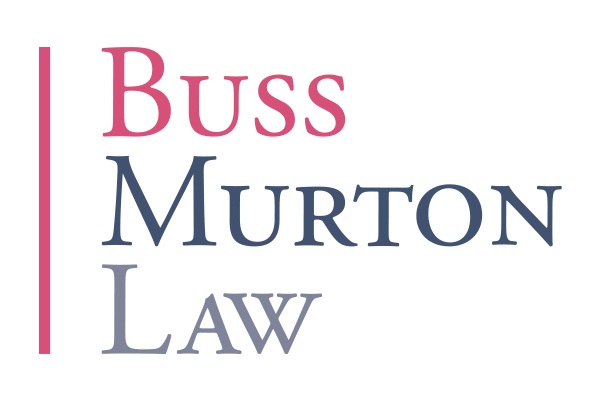Alex Smith, Buss Murton Law (Part 2): Running a modern law firm with traditional values; change management and capitalising on opportunities.

In the second of this two-part Buss Murton Law special, Extech Cloud speak to Alex Smith, Partner and Head of Finance and Operations, on how to run a modern law firm with traditional values. Alex discusses how they implement change and deliver initiatives to capitalise on opportunities quickly.
This article follows on from part one, where Andrew Linton, Managing Partner, discusses how Buss Murton Law strategically positions itself to embrace change, remain agile and overcome market challenges to deliver superior value to their clients.
Law firms are living entities where groups of people make thousands of decisions every day. These decisions ultimately define the success or failure of the firm. Occasionally, individual action may contradict the firm’s broader strategy due to biases and assumptions.
Buss Murton Law has a proud heritage, having been established over 300 years ago in 1713. Having run like a traditional partnership for many of these years, in 2016, Buss Murton Law became an alternative business structure (ABS), allowing non-lawyers to be become partners and owners of the firm.
According to Alex, this change has been one of the main catalysts for empowering the firm to make quicker decisions: When it comes to change, the partnership model has shown it is too slow to adapt to the risks or opportunities that present themselves. Having people being expected to make decisions in areas where they have limited experience can slow down the process far too much, and hinders the ability to capitalise on that opportunity, which is possibly why a number of law firms are far behind other industries. Instead, we have smaller working groups which play to people’s strengths, who can discuss and make informed decisions, while implementing an inclusive model.
https://extechcloud.com/wp-content/uploads/2019/05/Alex-Smith-Mono-Web.jpg
Alex joined Buss Murton Law in 2007 as a Business Analyst having previously worked in the shipping industry. Thereafter he headed up Buss Murton Law’s IT and Management Information Team, then became Financial Controller in 2013, and was appointed as the firm’s Practice Manager in June 2015.
In June 2016, following the firm’s move to an Alternative Business Structure, Alex was appointed the firm’s first non-lawyer Equity Partner.
Alex oversees all aspects of finance and operations, and with the latter responsibility, he must ensure that the firm operates efficiently while supporting Buss Murton Law’s lawyers to deliver an excellent service to its clients. To do so, Alex has highlighted three key areas which allow Buss Murton Law to operate as a modern firm with traditional values: change management, customer-focused technology and viewing technology as a continuous journey.
Change management
At a strategic level, firms must seek ways to deliver operational excellence. In traditional manufacturing, this can mean the introduction of new machinery or an improved factory layout. However, in modern professional services, this often means software and better IT.
Everyone has a certain way of working and it’s about showing people the benefits and how it can help them in their day-to-day tasks. With regards to introducing new technology, it takes time to educate and show people the benefits of what for some seems like a scary thing.
It’s important to understand how people work, their thoughts and processes. Technology can be great for compliance and finance, but you can’t just introduce a new standard process and tell people right, follow that and come out of it with the same result. People won’t do that; it’s a progressive hand-holding process. Some people will get it straight away, but others will need support and guidance.
Buss Murton Law don’t use the stick approach to change management. Instead they have found that an effective approach involves offering employees ongoing education and support. Rather than telling lawyers what to do, they take the time to understand and teach staff new methods and help them understand how collectively, this works in the best interest of the firm, and themselves.
It’s important to know your staff and clients. Effective change management does not involve sending an email round or sticking it on an Intranet; it’s a process of talking, listening, understanding, and educating. For any change that we introduce, we sit down with our staff and talk to them. It’s a very inclusive approach. We learn how people work so we can tailor any new solution to improve the quality or efficiency of work. It’s important for people to understand that they have a say in this and we’re not simply imposing it on them.
We can introduce technology while still understanding we’re a people-to-people business. It’s a process, but it’s the right way to do it.
For example, if you try to introduce MFA (multi-factor authentication), but your employees think their password is already secure enough, then you need to take time to educate them as to the risks of not using it, and the benefits of implementing it.
Otherwise, it’s just another step for them and taking up more of their time, even if it’s in the best long-term interests of the firm. So, we need to educate people who are resistant to change. It’s a daily challenge. I like to look as our staff as also our clients, and we need to ensure we’re offering the best advice and support to guide them.
Technology to deliver customer value
The introduction of new technology and processes is arguably one of the most difficult change management challenges. Though, to deliver on the strategic goals of any law firm, it’s also one of the more important. However, investing in technology for technology sake is not in the mindset of Buss Murton Law, and any introduction of software or IT must have clear benefits.
We use technology to ensure that the laborious processes are streamlined, so we can spend more time with our clients face-to-face.
And we need to use technology to ensure we can offer client services to an 80-year old, but also an 18-year old. We need to know and understand our clients, know what their needs are and know how to best communicate and interact with them. Are they a face-to-face client or do they want to deal via an app? We cannot limit ourselves to one form of communication and process for all.
Customer-centricity is central to Buss Murton Law’s investment in technology, and its solutions are designed to improve the service that its lawyers can deliver. As Andrew Linton mentions in part one of this series: technology is like the law, it’s changing all the time, therefore, firms must be constantly aware of balancing the opportunities of new technology with the needs of their clients.
As Alex eludes to:
The aim is to be a nose ahead, not a mile ahead. Otherwise, you run the real risk of your clients or staff not understanding the solutions you’re implementing.
It’s important to note that the reason we invest in technology is to benefit the client, and not to lose that face-to-face approach. For example, the use of Artificial Intelligence (AI) should streamline a lot of our processes so that our legal advisors can spend more time in front of the client understanding their needs. It’s there to increase face time, not replace it! Using bots etc. in this industry is missing the point of delivering true customer value.
Technology as a journey
Just like a business, technology doesn’t have an endpoint. Tech in a law firm, or any company, is a never-ending path.
It’s a journey we started on 4 or 5 years ago. Today, as a cloud-based organisation, it doesn’t matter what device you have in front of you, we have full access to our work, with the ability to communicate with our clients. We’ve become device agnostic.
It’s important to use your understanding and experience to blend the right technology and the right solution to the situation at hand.
There’s little point in thinking everything is a threat either because that will restrict your ability to develop, improve and grow. We need to see technology as an opportunity, and a journey. It’s not a flick of the switch; it’s iterative steps.
We start by finding a small group of people who are willing to make those first steps and go on that journey with us. Then not imposing it on the rest of the organisation but understanding how people work and showing them the benefits. If I don’t understand how they are working today, then I won’t be able to help them tomorrow, and then people won’t use the technology.
Customer-centricity, the technological philosophy and change management emphasis of Buss Murton Law have allowed the firm to not only put themselves in a position where they are change-ready but also to have a culture which will enable change to happen.
As a result, the company’s operational and financial position has gone from strength to strength making it one of the more forward-thinking firms in the industry.
This article proceeded part one where we spoke to Buss Murton Law’s Andrew Linton, Managing Partner, on how the firm had organised and positioned itself to be change-ready, agile and prepared to react quickly to opportunities.
Back to News & ResourcesRelated news
Book a free online consultation
We love talking to businesses and understanding what they do and what they need. If you'd like to book a short, no obligation consultation, please provide us with your details. We understand that you may already have an IT company, consultant or team, so all contacts are treated as completely confidential. A fresh new IT approach could begin here...
Keep connected
Newsletter signup
News & Resources
Get latest updates, downloads and white papers.

